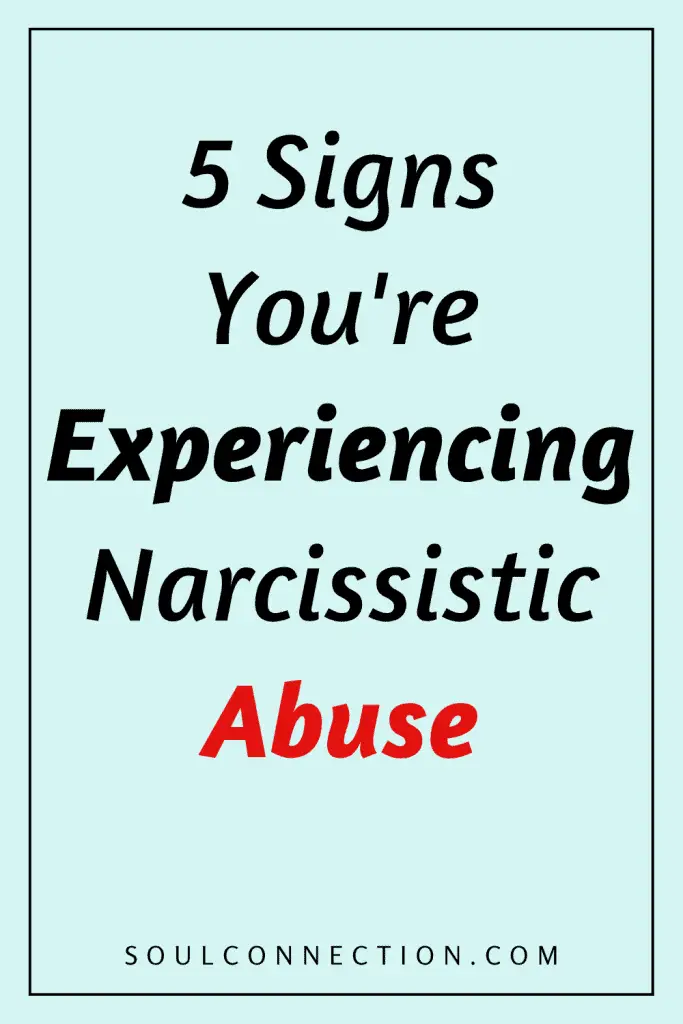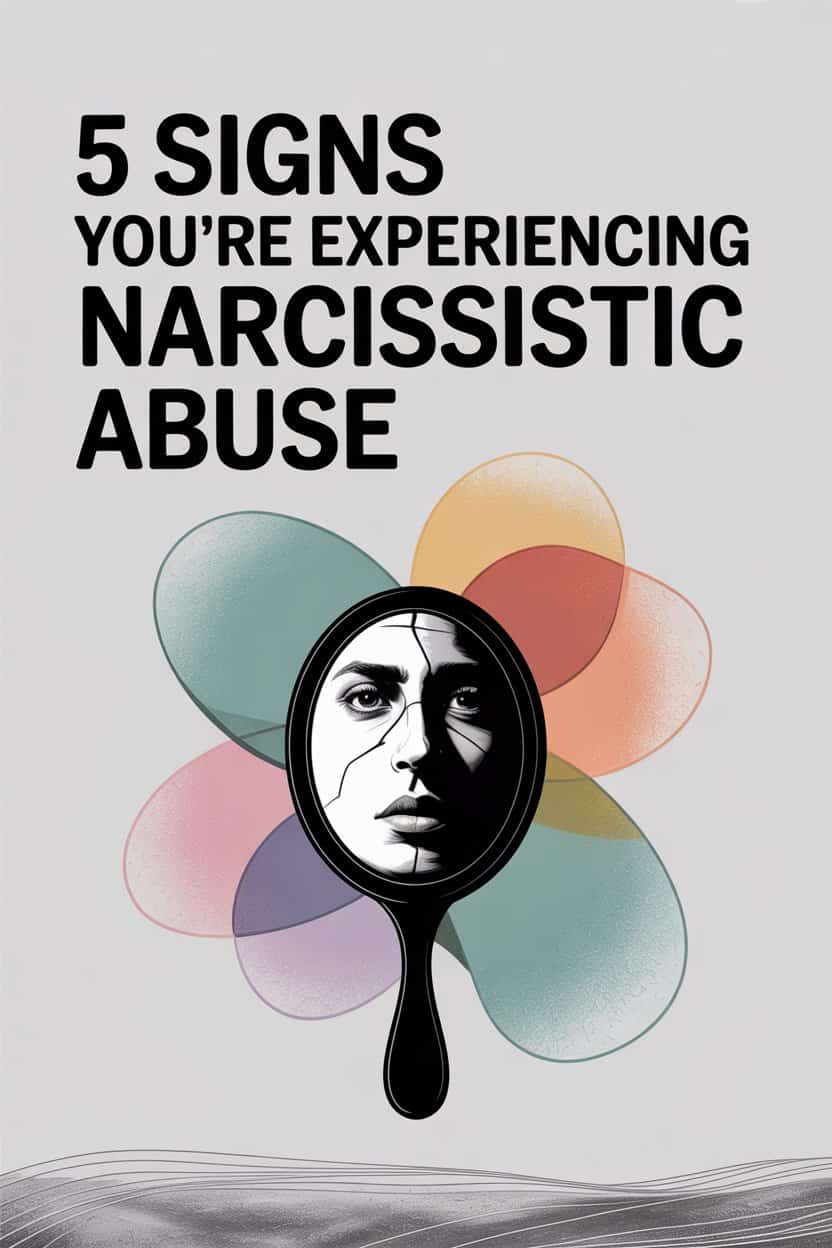Ever found yourself questioning your own sanity after a chat with your partner? Maybe you’ve wondered if you’re just “too sensitive” or you secretly Googled “Am I the drama?”
If something feels off but you can’t put your finger on it, pull up a seat. We’re about to shine a torch on the sneaky circus that is narcissistic abuse—and hand you a checklist even your therapist would raise an eyebrow at.
1. Gaslighting Makes You Question Reality
Remember that time you insisted your partner promised you’d go to your mum’s birthday dinner, but they swore up and down they never said it? Or when you were sure you saw those flirty texts, but they told you it was all in your head?
Congrats, you’ve played the Gaslighting Games. It’s a favourite pastime for narcissists: They twist facts, deny conversations, or flat-out lie, all with such conviction you actually wonder if you need more sleep (or less wine).
Victims of narcissistic abuse often walk around on eggshells, second-guessing their own memories. The next time you find yourself apologising for things you know you didn’t do, pause and ask, “Is my reality being rewritten?”
The antidote to this mind-bending magic trick? Write things down. Snap a photo of that calendar. Keep receipts.
If you’re feeling brave, repeat back what you heard during tricky conversations—preferably in front of someone else who isn’t auditioning for Master Manipulator 2024.
2. Emotional Roller Coaster: From Idolised to Invisible
One day you’re the sun, moon, and the best thing since sliced bread. The next, you’re barely worthy of a side-eye. This wild emotional whiplash isn’t a sign of your dazzling unpredictability; it’s classic narcissistic abuse.
At first, they might shower you with affection—think texts at midnight, surprise gifts, the full red-carpet treatment. You’re hooked. But soon, the praise dries up and you’re left feeling like yesterday’s news.
This cycle of idealisation and devaluation keeps you on your toes, desperate to get back in their good graces. You’ll twist yourself into pretzels trying to reclaim that early magic, but spoiler alert: the rules change every day, and you’re never told.
Try not to blame yourself for wanting their approval. Narcissists are Olympic-level at withholding affection to keep you chasing. Reclaim a bit of your sanity by recognising the pattern, not chasing the comeback tour.
3. Boundaries Are Nonexistent or Trampled
Ever noticed your boundaries are about as respected as a “Do Not Disturb” sign in a toddler’s playroom? Narcissists see your limits as mere suggestions, not rules.
Whether it’s reading your messages, criticising your friends, or making plans without you, narcissistic partners bulldoze through your comfort zones and then act offended when you protest.
You might start to feel guilty for even having boundaries—how dare you try to keep your own phone password private, after all!
Healthy relationships have mutual respect for personal space, time, and emotions. If saying “no” gets you silent treatment or a guilt trip, that’s not love—it’s manipulation with a side of entitlement.
It’s not selfish to have boundaries. It’s not dramatic to expect them to be honoured. In fact, try setting a tiny one tonight (no, they can’t have your Netflix password), just to feel the rush.
4. You’re Always to Blame, Even for the Weather
If a narcissist burns toast, it’s because you distracted them. If they’re late, it’s because you didn’t remind them. If the entire British rail system comes to a halt, well, you should have planned ahead.
This relentless blame game is designed to keep you off-balance and apologising for things you can’t control. Narcissists rarely accept responsibility, but they’ll hand out guilt faster than you can say “emotional baggage.”
You might start apologising for everything, from their bad mood to your own feelings. Here’s a secret: apologising won’t fix their behaviour, but it will make you feel worse.
Call out blame-shifting gently but firmly. Try: “I’m not responsible for your choices.” Or just practice your best Mona Lisa smile and refuse to bite the bait.
5. Isolation: Your World Shrinks Without You Noticing
Suddenly, you’ve stopped seeing old friends. Your family’s group chat is gathering dust. You haven’t had a real conversation with anyone who doesn’t live under your roof in weeks.
Narcissists love to shrink your world until they’re the only voice you hear.
It doesn’t always start as full-blown isolation. Maybe they criticise your mates (“They’re a bad influence!”), make you feel guilty for spending time away, or simply zap your energy with drama until making plans feels pointless.
This isn’t an accident—it’s a classic move that makes you easier to control and less likely to get reality checks from the outside.
If you notice your social circle has shrunk to the size of a postage stamp, reach out anyway. Call your mate, text your mum, join that WhatsApp group you keep ignoring. Even one outside connection is a lifeline.
How to Start Reclaiming Yourself
Spotting these signs is like finding out you’ve been swimming with sharks, not goldfish. But knowledge really is half the battle (and this time, you’re not losing your car keys in the process).
Start tracking what’s happening. Keep a private journal or notes on your phone. Confide in someone you trust—a mate, a therapist, or that one friend who already “never liked them anyway.”
Setting even the tiniest boundary can remind you what respect feels like. Maybe it’s saying you need half an hour to yourself, or simply voicing your opinion without apology.
Rebuilding your confidence after narcissistic abuse is a job for more than one night, but even noticing the patterns puts you streets ahead of where you were yesterday.
If your situation feels unsafe or overwhelming, don’t hesitate to seek professional help. Your future self will thank you for it.
You Deserve Better (And You Know It)
Recognising narcissistic abuse isn’t about diagnosing your partner or scoring points in the world’s worst relationship contest. It’s about trusting your own experience and refusing to settle for a life lived under someone else’s thumb.
Healthy love might be a bit messier than the fairytales promised, but it never leaves you doubting your very reality or shrinking your world to fit someone else’s ego.
You’re worthy of respect, kindness, and relationships where “I’m sorry” doesn’t mean fixing someone else’s mess.
And if your partner can’t get on board, maybe it’s time to write yourself a better story—no narcissists allowed.


